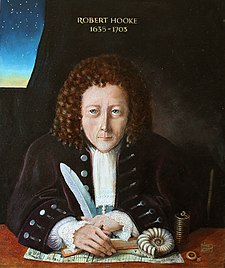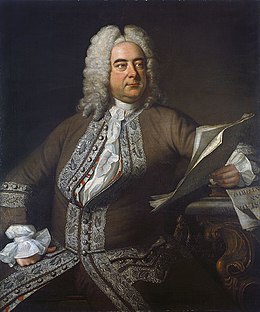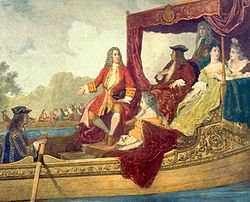15 Reasons Why Wars Are Utterly Stupid & Daft:
A list which came about because I am in the middle of revising for my final exam on the history of warfare, a topic I loathe, and the only interesting facts I manage to find about the battles are ones that are far to trivial to write about in an essay
and
because I like lists a lot.
1) Shoes are important:
The Battle of Gettysburg, in 1863, remains the largest battle ever to have been fought on American soil. Ever. And do you know why it came about? Confederate General Robert E. Lee's army had no shoes, and when they found themselves outside the small Pennsylvanian town of Gettysburg, they thought to themselves, 'Oh hey guys, these Northerners have lots of shoes! Let's go raid the town for them!'. So they did. Where they happened to bump into the massive Union army, and realized that they'd better start fighting. The Confederates lost the battle, sadly, so I don't think they got any shoes at the end of it all. Sadface.
2) No really, they are:
My friend Phil told me this story: during the Crimean War, the British were hopelessly disorganised, and decided to send all the left boots down to the Crimea on one ship, and all the right ones on another. And one of the ships sank. You couldn't make it up...
3) Actually, the whole of the Crimean War was a bit of a farce:
I feel a bit bad making fun of the Charge of the Light Brigade, because so many people died, which is obviously a horrible thing, and would've been devastating for their families and everything, but the whole thing was completely preventable. British cavalry were given the order to charge up the 'Valley of Death', waving their swords about, whilst the Russians blasted them to pieces with cannons on all sides, thinking the British must be drunk.
4) To be honest, most nineteenth century wars were totally ridiculous:
Take the Franco-Austrian War of 1859, for example. It's a fairly insignificant one, in the grand scheme of things, but one thing it is famous for is the fact that the French had the bright idea to utilize the new railways to get their troops to the battlefield fresh and ready to fight, whereas the Austrians went on a two week march to get there. Anyway, the Austrians eventually cottoned on to this train business, and sent their reserve force to the next battle this way. Except they got off at the wrong station and completely missed the battle. Really.
5) And if they weren't missing battles, they were being inadequately prepared:
So a few years later, in 1870, the French were fighting the Prussians, and they had this amazing new weapon, called the matrielleuse. It was a forerunner to the machine gun, so if you were into slaughtering innocent soldiers, it should totally have been your weapon of choice. The Prussians should have been completely wiped out, but they weren't, because the French soldiers hadn't been trained in how to use their new gun, so it was effectively completely pointless.
6) Still, at least the French actually had an army:
After Charles II was restored to the throne, Parliament wanted to control his actions as they were afraid he'd do what his father had done, and plunge the country into Civil War again. Their solution, therefore, was to pay for and control the Navy, whilst allowing Charles an army only if he promised to pay for it himself. (Which, y'know, doesn't seem like the brightest move ever - 'Of course you can have an army! Just as long as you're in total control of it, not us! That'll ensure you won't try to attack us or anything...') In the end, Charles didn't attack the MPs (he was too busy partying and being a closet Catholic, two things which totally go together...) but for many years, the English army wasn't officially recognised as such, and the country at least technically had no army.
7) However rubbish and unofficial the English army was, at least it wasn't full of sheep:
So the Civil Wars themselves were very complex, and their origins even more so, but one of the reasons they occurred was because Charles I needed money from Parliament for a war he was fighting in Scotland - the Bishops' War. In this war, England and Scotland were fighting over Bibles (as you do...), but the English army was much larger than the Scottish one, so the Scottish generals found themselves in a bit of a quandary. They decided that if they could trick the English into thinking their army was much larger than it was, they might be unwilling to fight them - and this plan turned out to be a good one. They did indeed manage to trick the English, by padding out their ranks with sheep, whom the English thought were...particularly woolly soldiers? God knows how this one worked...
8) Mind you, at least they weren't being paid in wool:
During the 100 Years' War, coinage was in short supply, so the English soldiers were paid in sacks of wool. Because all a fighting bloke really wants to do is learn to knit...
9) And about that '100' Years' War business:
Yeah, it actually lasted 116 years. But looking on the bright side, standards in numeracy had improved immeasurably by the time the Seven Years' War rolled round, and that ended bang on time, in 1763.
10) Also, at least numeric names make sense:
100 Years' War, 30 Years' War, Seven Years' War - they're all fairly logical, no? War of 1812 - that's another fairly self-explanatory one. The War of Jenkins' Ear...yeah, perhaps not. Though thinking about it, it started because Captain Jenkins had his Ear cut off by Spanish coast guards, so the name isn't that daft, even if the war itself was...
11) If you thought the names of wars were daft, wait until you hear what's going on on the battlefield:
So there's a very famous miscommunication about the First World War, where some field commander or another sent a message via telegram saying, "We're going to war, send reinforcements" but this got mistranslated and ended up as "We're going to a ball, send three and fourpence", and I can kind of see how this happened but honestly, didn't anyone think to check if this was the right message, coming from, y'know, a battlefield. War does this to people...
12) Sometimes, people switch sides in the middle of conflicts:
Have you ever watched a children's cartoon and seen one of those montages where the good guys chase the monster through a door, then you see them turning around with the monster chasing them, then next thing you know, they're chasing the monster again, and no one knows what's going on? You have? Good. Visualize that happening in real life, 'cause it did: in 1460, the Earl of Warwick invaded (I'm assuming from some far distant land, and not, y'know, the well known island of Warwickshire...) captured Henry VI and installed Edward IV on the throne. Ten years later, in 1470, Warwick invaded again (oh who knows, maybe the Midlands were suffering from a lot of flooding around that time...), this time reinstalling Henry VI. You couldn't make it up...
13) We didn't get much better in World War Two either:
So Dunkirk was this terribly disorganised thing, where a load of British soldiers were trapped on a beach in Normandy with German soldiers advancing towards them and readying their planes to fly over and drop bombs on them, so the government requisitioned every ship on the south coast, even little two or three man fisher-boats to go out and rescue them, and they managed it, securing the rescue of the soldiers trapped on the beaches. In fact, everyone was so elated by the events that Winston Churchill had to make a special radio broadcast reminding the country that this wasn't actually a victory - in fact, it was a pretty awful defeat.
14)Anyway, sometimes you don't even need to fight, you can just employ a terrible euphemism plonk your warship in someone else's harbour:
As the British did when the Portuguese threatened to renege on their promise to grant independence to Brazil. No shots were fired and no fighting happened, but a stern warning was issued, and the best ship in the Navy set sail for Lisbon just to reinforce the point.
15) And sometimes, you just need to sound convincing:
In 1823, President James Monroe issued the Monroe Doctrine to the rest of the world, which basically said "Hey you guys? Yeah, don't attack us, 'cause we'll so get you back worse". Well, I'm not sure he said it quite like that, but that was definitely the general gist of things. Anyway, Spain and Portugal, who had both been planning to continue or restart old wars, backed down completely upon hearing this. Even though, at the time, the US had no navy and a very poxy little army. So really, all you need to do is sound threatening enough!
Oh my God. Am I condoning bullying?! Oh dear...
 3) He invented the balance spring in a watch independently and fifteen years before anyone else did (though others get the credit mainly because he was didn't patent his design).
3) He invented the balance spring in a watch independently and fifteen years before anyone else did (though others get the credit mainly because he was didn't patent his design).


